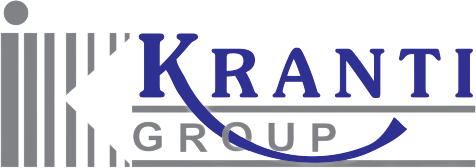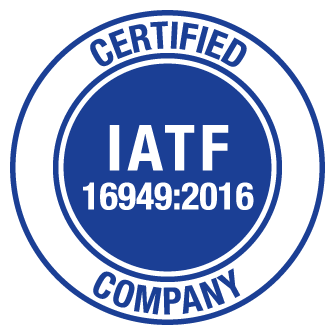Modern Ledger Systems Changing Accounting Practices
Incorporating advanced technology is crucial for modernizing accounting practices. Implement a usb security handler to safeguard sensitive financial data. This tool not only enhances security but also streamlines the process of data retrieval during audits.
Utilize a crypto id validator to verify identities and transactions with unparalleled accuracy. This feature minimizes the risk of fraud and increases trust among stakeholders in the digital transaction environment. With enhanced verification, the accounting process becomes smoother and more reliable.
Consider integrating a firmware app board into your ledger systems. This addition enables real-time updates and ensures compliance with the latest regulations. The app board acts as a hub for managing various accounting tasks, from data entry to financial reporting.
Implement a ledger unlock system that combines robust security with user-friendly access. Empower your team with a system that not only protects data but also facilitates seamless collaboration in financial management. A well-designed interface is key to improving overall productivity.
Don’t overlook the advantages offered by a hardware interface unlock. This innovation permits instant access to critical accounting tools while maintaining a secure environment. By integrating this technology, organizations can enhance their operational efficiency and provide instant access to necessary resources.
Streamlining Data Entry with Automated Ledger Solutions
Utilize automated ledger solutions to enhance data entry processes. Integrate a wallet app loader that simplifies transaction imports directly from your crypto wallets. This functionality accelerates audits, ensuring that financial records are up-to-date and accurate.
Implement the wallet pairing module for seamless connectivity between various wallet types. For example, auto-syncing a hardware interface unlock feature can streamline transactions from a cold wallet pairing. This maintains security while allowing quick access to financial data during audits.
Incorporate a wallet unlock assistant to facilitate user authentication processes. By using pin crypto link, you ensure secure access without sacrificing speed. This allows for prompt updates to the ledger with minimal manual input.
Regularly auditing financial data through automated systems not only saves time but also reduces errors. Automated solutions convert complex entries into simplified transactions, making accounting more reliable and straightforward.
Consider leveraging the full potential of crypto wallet integrations to establish a transparent and efficient accounting framework. This enhances real-time tracking of assets and simplifies reporting, allowing businesses to maintain accurate financial health effortlessly.
Enhancing Accuracy through Real-Time Transaction Processing
Implementing real-time transaction processing significantly boosts the accuracy of financial records. Utilize crypto token log for seamless tracking of each transaction, enabling you to monitor every single entry without delays. This immediate visibility allows for timely corrections and reconciliations, minimizing potential errors in reporting.
Web3 dashboard access provides instant insights into transaction behaviors. Integrate dashboard crypto tools to visualize trends and anomalies in real time. This proactive approach facilitates quicker adjustments and strategic decision-making, enhancing overall accuracy.
Incorporate a wallet firmware module that ensures secure and accurate processing of transactions. The wallet unlock assistant streamlines this process, allowing users to verify their actions swiftly, thereby reducing the chance of human errors during wallet operations.
Utilizing a hardware controller enhances the reliability of your transactions. The wallet unlock module provides an additional layer of security by ensuring that only authorized actions are executed, reducing discrepancies in transaction history.
Regular wallet crypto audits are vital for maintaining accuracy. An app verification screen serves as a checkpoint for confirming transaction legitimacy, which supports trustworthy financial records. The firmware app board can facilitate these audits by providing necessary data logs for review.
Finally, testing your systems with a crypto ID validator ensures that each transaction is tied to a verified identity, which significantly decreases the risk of fraud and errors. By leveraging these modern ledger systems, your organization can achieve a level of accuracy that enhances financial integrity and transparency.
To explore advanced solutions for implementing real-time transaction processing, check out ledger live.
Integrating AI for Predictive Financial Analytics
Integrate AI to enhance your predictive financial analytics by utilizing advanced tools and techniques. Focus on a few key areas for effective implementation.
- Wallet Scan Assistant: Employ AI-driven wallet scan assistants to identify patterns in transactions. This tool helps in predicting future cash flows and detecting unusual spending behaviors swiftly.
- Cold Wallet Pairing: For secure storage, integrate cold wallet pairing alongside AI protocols. This provides insights into long-term investment strategies while safeguarding your assets.
- Firmware Unlock Access: Ensure your systems are equipped with firmware unlock access for seamless data retrieval. This capability ensures AI systems can analyze the most relevant financial data without hindrance.
- Hardware Key Module: Use a hardware key module for secure authentication. AI can utilize these keys to streamline processes and maintain data integrity during predictive analytics.
- AI-Enhanced Wallet App Loader: Develop wallet app loaders that leverage AI for real-time data analysis. This allows for immediate adjustments based on predictive modeling.
- Pin Crypto Link: Utilize pin crypto links in data security to ensure that AI processes financial data without any vulnerabilities, thus maintaining confidentiality in analytics.
- Crypto ID Validator: Implement crypto ID validators to enhance accuracy in user data verification. This increases the precision of AI predictions, ensuring that financial forecasts are based on verified information.
By focusing on these integrations, you can leverage AI capabilities effectively, enhancing the quality and reliability of your financial analytics. Stay ahead in your accounting practices by adopting these innovative strategies.
Improving Compliance with Advanced Audit Trail Features
Utilize a secure vault handler to ensure all transactions are logged effectively. This feature provides a robust layer of protection for your sensitive data, ensuring that all financial activities can be traced back to their origins. Regularly audit these logs to maintain compliance and identify any discrepancies promptly.
Incorporate dashboard crypto tools that visualize key compliance metrics. These tools enable real-time tracking of transactions and compliance statuses, helping accountants stay informed and proactive. Set alerts for irregular activities detected by the dashboard to address potential issues quickly.
The app verification screen offers additional security by ensuring that only authorized personnel access sensitive information. Implement multi-factor authentication on this screen to enhance security further and meet compliance standards. Regularly review access logs to ensure that only approved users interact with the system.
Data integrity is paramount. Employ a crypto token scanner to verify the authenticity of transactions. This tool scans and validates tokens used during transactions, preventing fraudulent activities and supporting compliance with industry regulations.
A wallet firmware module must be kept up-to-date to protect against vulnerabilities. Ensure that all firmware updates are applied promptly, following manufacturer recommendations. This step helps in complying with security best practices and maintaining the integrity of the ledger.
Use a ledger device monitor to oversee device performance and security. This monitor allows for the real-time assessment of device health, identifying issues that could lead to compliance lapses. Report any irregularities immediately to maintain transparency with stakeholders.
Lastly, deploy a wallet app loader that simplifies the onboarding process for new applications. By streamlining installation and ensuring that only compliant apps are loaded, you can better manage risks and maintain a high standard of compliance.
| Feature | Benefit |
|---|---|
| Secure Vault Handler | Logs all transactions for accountability |
| Dashboard Crypto Tools | Visualizes compliance metrics in real-time |
| App Verification Screen | Restricts access to authorized users |
| Crypto Token Scanner | Validates transaction authenticity |
| Wallet Firmware Module | Ensures optimal security and performance |
| Ledger Device Monitor | Tracks device health and alerts for issues |
| Wallet App Loader | Streamlines app installation for compliance |
Facilitating Collaboration with Cloud-Based Ledger Systems
Utilize cloud-based ledger systems to enhance teamwork among accounting professionals. Implement a crypto token log to track transaction history in real time, ensuring transparency for all parties involved. This log supports collaboration by providing access to all relevant stakeholders, simplifying the auditing process.
Integrate firmware unlock access features to streamline permissions for team members. By controlling who can access specific functions, you ensure data integrity while allowing necessary collaboration on financial records. Enhance security with a secure crypto monitor to oversee activities and protect sensitive information from unauthorized access.
Consider a wallet restoration path that enables team members to recover lost information quickly and efficiently. This pathway reduces downtime and maintains workflow continuity during unexpected events. Additionally, deploying a wallet unlock module enhances flexibility, allowing users to access their digital assets from various secure devices without compromising security protocols.
Incorporate a firmware app board that provides updates and features directly to users. This board fosters a collaborative environment by ensuring that all team members work with the latest tools and functionalities, ultimately improving overall performance. A hardware key module enhances security further, safeguarding data integrity through physical access controls.
Implementing these systems transforms how accounting practices operate, making them more adaptable and collaborative. Embrace these innovations to support your firm’s accounting capabilities and strengthen team dynamics.
Reducing Costs through Simplified Reconciliation Processes
Implement USB security handler tools to enhance the reconciliation process. These tools ensure reliable access to transaction data, streamlining the verification of entries against your accounts. By deploying a cold crypto locker for secure asset storage, organizations can minimize the risk of discrepancies, leading to more consistent financial reports.
Utilize crypto token scanners that automate data gathering from various sources. This reduces manual input errors and speeds up reconciliation, resulting in lower labor costs. Complement this with a wallet app loader to manage transactions directly from secure wallets, facilitating quicker access to transaction histories.
Integrate hardware key modules that authenticate user access and monitor transaction integrity. This not only solidifies security but also prevents unauthorized changes that could complicate reconciliation efforts. Additionally, employing a firmware app board can optimize the management of ledger updates, ensuring swift synchronization across platforms.
Establish a wallet restoration path to effortlessly recover lost data and streamline future reconciliation processes. Introducing a crypto tool config can further aid in creating a consistent environment for all necessary crypto transactions, enhancing clarity and accuracy.
Monitor crypto assets with a secure crypto monitor that provides real-time insights into your financial position. This proactive measure avoids potential mismatches during reconciliation. Leverage a wallet firmware module for regular updates that maintain system efficiency and security standards.
Employ a wallet unlock assistant for easy access during reconciliations. This can speed up the process while ensuring that security protocols remain intact. Lastly, a secure vault handler provides an added layer of protection for sensitive financial data, allowing teams to focus on strategic financial management instead of correcting errors.
For further insights into modern accounting practices, refer to Forbes.
Question-answer:
What are modern ledger systems and how do they differ from traditional accounting methods?
Modern ledger systems, such as blockchain and cloud-based solutions, utilize technology to enhance data accuracy and transparency in accounting. Unlike traditional methods which often rely on physical records and manual entry, these systems enable real-time updates and remote access. This digital format allows for greater collaboration among stakeholders, reduces the likelihood of errors, and streamlines the reconciliation process. In addition, they often incorporate automation features, which can significantly reduce the time spent on routine tasks.
How do modern ledger systems improve data security in accounting?
Modern ledger systems enhance data security through various mechanisms. Blockchain-based systems use cryptographic techniques to ensure that records are immutable and tamper-proof, significantly lowering the risk of fraud. Access controls and user authentication protocols are also commonly implemented, allowing only authorized personnel to view or modify financial information. Furthermore, regular backups and cloud storage options bolster data integrity by providing recovery solutions in case of data loss or incidents.
What impact do modern ledger systems have on compliance and regulatory reporting?
Modern ledger systems simplify compliance and regulatory reporting by automating data collection and reporting processes. With features like automated audits and real-time tracking, businesses can more readily adhere to regulations and standards set by governing bodies. This transparency allows for faster response times when audits are required, as all financial data is readily accessible and organized. Additionally, these systems often come with built-in compliance checks to alert users of any potential discrepancies or issues.
How can businesses choose the right modern ledger system for their needs?
Choosing the right modern ledger system requires assessing several factors such as business size, industry requirements, and specific accounting needs. Organizations should evaluate the features offered, such as integrations with existing software, user-friendliness, scalability, and customer support. It’s beneficial to conduct trials or seek demonstrations to see how the system performs in practice. Furthermore, consulting with financial experts or peers in the industry can provide insights into what has worked for similar organizations.
What challenges do businesses face when transitioning to modern ledger systems?
Transitioning to modern ledger systems can present several challenges. Resistance to change among employees is common, as individuals may be accustomed to traditional methods and hesitant to adapt to new technology. Additionally, implementation costs and the need for training can be significant hurdles. Integrating new systems with existing workflows also poses difficulties, particularly if data migration is required. Effective change management strategies, including thorough training and clear communication about the benefits, can aid in overcoming these challenges.
How do modern ledger systems improve accuracy in accounting practices?
Modern ledger systems use advanced technologies such as blockchain and cloud computing to increase the precision of financial records. By utilizing decentralized databases, these systems can reduce human error associated with traditional bookkeeping. Each transaction recorded in a ledger is time-stamped and immutable, ensuring the integrity of the data. These systems also often feature real-time updates, allowing accountants to access the most current information at any time, which enhances decision-making and reduces the likelihood of discrepancies in financial reporting.
What are some key features of modern ledger systems that differentiate them from traditional methods?
One of the standout features of modern ledger systems is automation. Unlike traditional systems, which rely heavily on manual entry, many modern solutions incorporate automated processes that speed up data input and reduce errors. Additionally, these systems often support integration with various financial tools, enabling a seamless flow of information across different platforms. Another distinguishing element is their collaborative capabilities; multiple users can access and edit the same ledger concurrently, which enhances teamwork and transparency in financial operations. Lastly, the enhanced security measures inherent in these systems, such as cryptographic protocols, ensure that sensitive financial data remains protected against unauthorized access and fraud.




